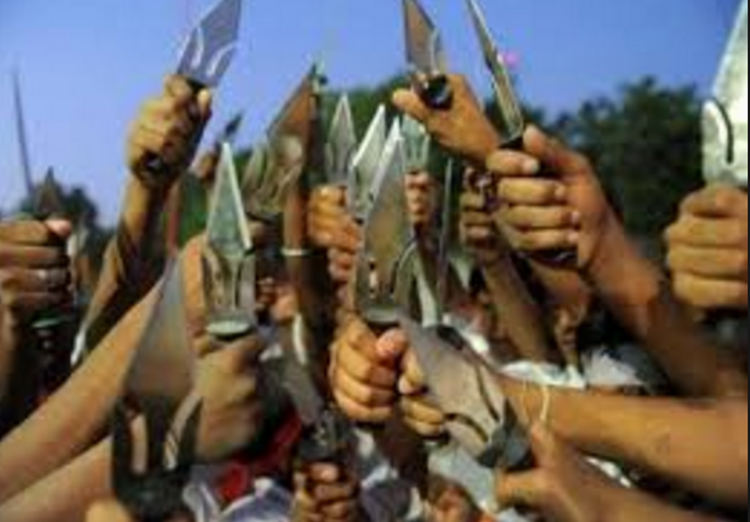The prominent journalist and editor, Shujaat Bukhari was leaving work when he and his two bodyguards were shot and killed. Suffice to say newspapers are the lifeblood of democracy and Indian administered Kashmir under the decades-long grip of a half-million strong security force has a questionable claim. Yet brave journalists, unafraid, write and sometimes pay the consequences.

Following Mr. Bukhari’s murder and the thousands attending his funeral, the security services have raided presses shutting down newspapers. The internet is not quite as easily controlled, so some have been busy updating their sites.
Since Gauari Lankesh was brutally murdered at her doorstep in September 2017, another four journalists have lost their lives. She, too, espoused views contrary to the ruling party’s current philosophy of an India aligned only with the mores of upper-caste Hindus.
Jawaharlal Nehru and Gandhi, the principal Indian leaders who fought many decades for independence would have been appalled. Gandhi protected low caste untouchables referring to them as the ‘children of god’; they are now known as Dalits. Nehru, a Brahmin by birth, was a socialist in belief. His dream was of a secular, socialist India. The latter is long over, the former under vicious attack as Muslim and Christian minorities are marginalized. In addition to journalists, three heavyweight intellectuals have been killed. All were rationalists, the Indian word for atheists.
Gandhi was assassinated less than six months after independence by a right-wing Hindu nationalist who was angry at Gandhi’s moderate attitude toward Muslims. The assassin Nathuram Godse was a member of the extreme-right Hindu Mahasabha political party, and had his roots in the paramilitary, Hindutva-promoting Rashtriya Swayamsevak Sangh (RSS). Its militancy has led to its being banned three times: after the Gandhi assassination, during the Indira Gandhi emergency rule in the mid-1970s, and for its role in the Babri Mosque demolition. The British also found its beliefs beyond the pale and banned it during their rule.
Not only is the RSS flourishing now but it serves openly as the ideological mentor of the ruling Bharatiya Janata Party (BJP). Together they continue to push their agenda for a Hindu India tolerating only Hindu culture or beliefs, in other words, Hindutva or Hindu hegemony.
Hindutva scholar Shridhar D. Damle confirms what is quite well known, that the RSS is now exerting its influence in academia, government and cultural organizations. The laws restricting cow slaughter are not a Narendra Modi whim. Mr. Modi joined the RSS at the age of eight, was nurtured and nourished by it, the philosophy seeping into his bones like mother’s milk; any moderation necessitated only by political considerations.
The RSS infiltration of academia is pervasive. Last year, its think tank, Prajnah Pravah, summoned 700 academics including 51 university vice-chancellors (presidents) to Delhi to attend a workshop on the importance of a Hindu narrative in higher education; just one example of influencing what can be taught. A gradual loss of academic freedom has been the frightening consequence of constant interference backed up by its militancy — frightening because dying with intellectual freedom, journalists, writers and thinkers is also Indian democracy … slowly but surely, unless the voters stand up to the RSS sharkhas (volunteers) at the next election.
Nobody knows who killed Mr. Bukhari. But when the standards have been set and a certain climate prevails, does it mean much?
Dr Arshad M Khan (http://ofthisandthat.org/index.html) is a former Professor based in the U.S. whose comments over several decades have appeared in a wide-ranging array of print and internet media. His work has been quoted in the U.S. Congress and published in the Congressional Record.
Courtesy: https://countercurrents.org
